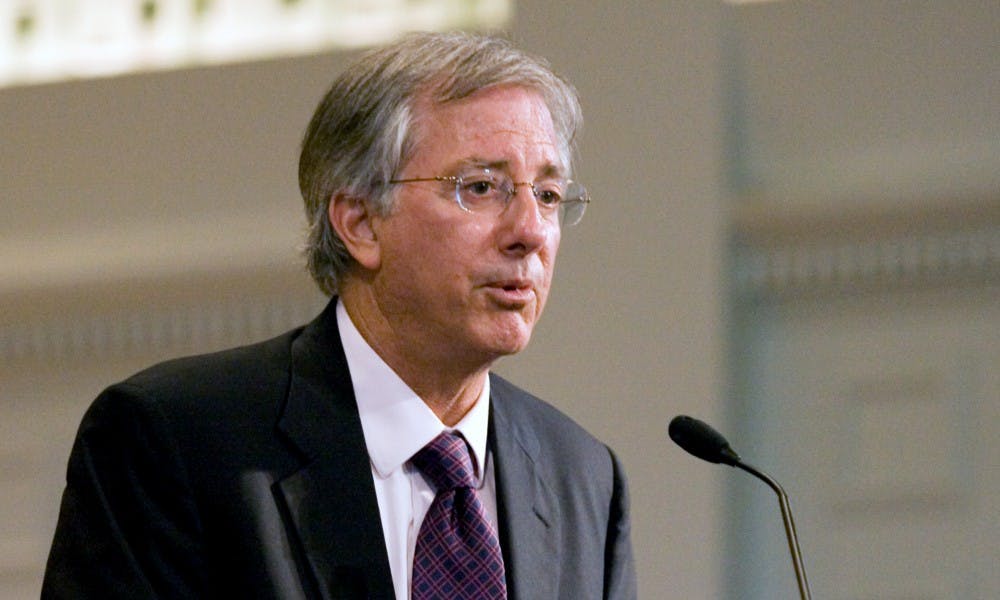Ambassador Dennis Ross spoke to a full room at the Perry World House to discuss the current state of the Middle East.
He spoke on Monday as part of the Ilan Heimlich Memorial Speaker and Film Series at Penn Hillel. It was the third event in the inaugural series, which aims to explore the complexity of Israel relative to religion, diplomacy, and culture.
Ross is the counselor and William Davidson Distinguished Fellow at The Washington Institute for Near East Policy and has served under every president from Carter to Obama, except George W. Bush.

In addition to Hillel, the event was sponsored by 12 constituent groups on campus, whose organizations are rooted in politics and political affairs.
The event, though titled “Israel at 70 - Opportunities and Challenges” for the 70th year since Israel's declared independence, provided what Ross labeled as a “broader conversation on the area as a whole.”
Throughout the discussion, he addressed Israel in the context of the Middle East, or as he put it, “Israel is a nation categorized by enormous restraints, but [lying] in a very difficult neighborhood.”
The conversation's wider scope on the Middle East stood out to attendees.
RELATED:
PA Congressman at Penn: 'Israel is greater threatened today than anytime since 1948'
One of Israel's top politicians expressed her support for a two-state solution at Penn on Thursday
“I thought it was interesting that he didn’t just focus on the Israelis and Palestinians because a lot of people tend to focus on the issue without realizing how other things in the region are affecting it as well,” said College sophomore Hannah Levinson.
Levinson serves as campus relations coordinator of the Penn Israel Public Affairs Committee, an event sponsor that advocates for a strong United States-Israeli relationship.
Ross instead chose to address Israel through its numerous tensions with other countries. He stated that the present state is “worse than anything we’ve seen before” for this very reason. He identified these conflicts, which included the situations in Yemen, Syria, and Saudi Arabia, as results representative of a “fear of [the] loss of regimes." Ross added that acknowledging this fear is a critical first step in solving these issues.
The event was divided into lectures, a conversation with Penn professor Benjamin Nathans, and open discussion. Nathans questioned Ross about his beliefs on the current administration's action, or lack thereof, in Syria.
Ross claimed that “Donald Trump is the anti-Obama … except in one place, Syria.” He regarded the former president’s interactions with the nation as tentative and laden with a fear that it would develop into the “next Iraq.”
Ross ended the discussion by saying that he “remain[ed] fundamentally optimistic for Israel’s future."



